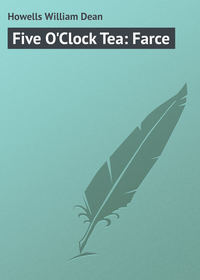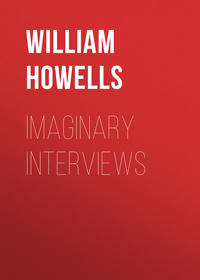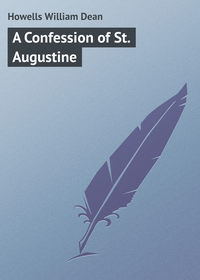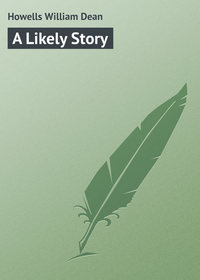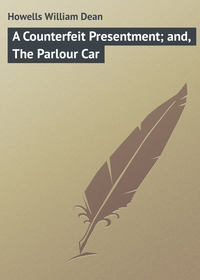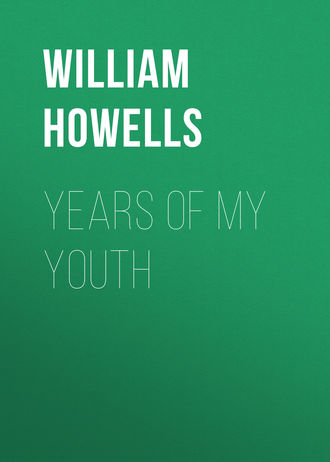 полная версия
полная версияYears of My Youth
Of skating on the river I think we had none. The winter often passed in our latitude without making ice enough for that sport, and there could not have been much sledding, either. We read, enviously enough, in Peter Parley’s First Book of History, of the coasting on Boston Common, and we made some weak-kneed sleds (whose imbecile runners flattened helplessly under them) when the light snows began to come; but we never had any real coasting, as our elders never had any real sleighing in the jumpers they made by splitting a hickory sapling for runners, and mounting any sort of rude box upon them. They might have used sleighs in the mud, however; that was a foot deep on most of the roads, and lasted all winter. For a little while some of us went two miles away through the woods to school; but there was not much to be taught a reading family like ours in that log hut, and I suppose it was not thought worth while to keep us at it. No impression of it remains to me, except the wild, lonesome cooing of the turtle-doves when they began to nest in the neighboring oaks.
Our new house got on slowly. The log cabin had not become pleasanter with the advance of the summer, and we looked forward to our occupation of the new house with an eagerness which even in us boys must have had some sense of present discomfort at the bottom of it. The frame was of oak, and my father decided to have the house weather-boarded and shingled with black-walnut, which was so much cheaper than pine, and which, left in its natural state, he thought would be agreeable in color. It appeared to me a palace. I spent all the leisure I had from swimming and Indian-fighting and reading in watching the carpenter work, and hearing him talk; his talk was not the wisest, but he thought very well of it himself, and I had so far lapsed from civilization that I stood in secret awe of him, because he came from town – from the little village, namely, two miles away.
I try to give merely a child’s memories of our life, which were nearly all delightful; but it must have been hard for my elders, and for my mother especially, who could get no help, or only briefly and fitfully, in the work that fell to her. Now and then a New Church minister, of those who used to visit us in town, passed a Sunday with us in the cabin, and that was a rare time of mental and spiritual refreshment for her. Otherwise, my father read us a service out of the Book of Worship, or a chapter from the Heavenly Arcana; and week-day nights, while the long evenings lasted, he read poetry to us – Scott, or Moore, or Thomson, or some of the more didactic poets.
In the summer evenings, after her long hard day’s work was done, my mother sometimes strolled out upon the island with my father, and loitered on the bank to look at her boys in the river; one such evening I recall, and how sad our gay voices were in the dim, dewy air. My father had built a flatboat, which we kept on the smooth waters of our dam, and on Sunday afternoons the whole family went out in it. We rowed far up, till we struck a current from the mill above us, and then let the boat drift slowly down again. It does not now seem very exciting, but then to a boy whose sense was open to every intimation of beauty, the silence that sang in our ears, the stillness of the dam where the low uplands and the fringing sycamores and every rush and grass-blade by the brink perfectly glassed themselves with the vast blue sky overhead, were full of mystery, of divine promise, and holy awe.
I recollect the complex effort of these Sunday afternoons as if they were all one sharp event; I recall in like manner the starry summer nights, and there is one of these nights that remains single and peerless in my memory. My brother and I had been sent on an errand to some neighbor’s – for a bag of potatoes or a joint of meat; it does not matter – and we had been somehow belated, so that it was well after twilight when we started home, and the round moon was high when we stopped to rest in a piece of the lovely open woodland of that region, where the trees stood in a parklike freedom from underbrush, and the grass grew dense and rich among them. We took the pole, on which we had slung the bag, from our shoulders, and sat down on an old long-fallen log, and listened to the densely interwoven monotonies of the innumerable katydids, in which the air seemed clothed as with a mesh of sound. The shadows fell black from the trees upon the smooth sward, but every other place was full of the tender light in which all forms were rounded and softened; the moon hung tranced in the sky. We scarcely spoke in the shining solitude, the solitude which for once had no terrors for the childish fancy, but was only beautiful. This perfect beauty seemed not only to liberate me from the fear which is the prevailing mood of childhood, but to lift my soul nearer and nearer to the soul of all things in an exquisite sympathy. Such moments never pass; they are ineffaceable; their rapture immortalizes; from them we know that, whatever perishes, there is something in us that cannot die, that divinely regrets, divinely hopes.
XI
Our log cabin stood only a stone’s-cast from the gray old weather-tinted grist-mill, whose voice was music for us by night and by day, so that on Sundays, when the water was shut off from the great tub-wheels in its basement, it was as if the world had gone deaf and dumb. A soft sibilance prevailed by day over the dull, hoarse murmur of the machinery; but late at night, when the water gathered that mysterious force which the darkness gives it, the voice of the mill had something weird in it like a human moan.
It was in all ways a place which I did not care to explore alone. It was very well, with a company of boys, to tumble and wrestle in the vast bins full of tawny wheat, or to climb the slippery stairs to the cooling-floor in the loft, whither the little pockets of the elevators carried the meal warm from the burrs, and the blades of the wheel up there, worn smooth by years of use, spread it out in an ever-widening circle, and caressed it with a thousand repetitions of their revolution. But the heavy rush of the water upon the wheels in the dim, humid basement, the angry whirr of the millstones under the hoppers, the high windows, powdered and darkened with the floating meal, the vague corners festooned with flour-laden cobwebs, the jolting and shaking of the bolting-cloths, had all a potentiality of terror in them that was not a pleasure to the boy’s sensitive nerves. Ghosts, against all reason and experience, were but too probably waiting their chance to waylay unwary steps there whenever two feet ventured alone into the mill, and Indians, of course, made it their ambush.
With the sawmill it was another matter. That was always an affair of the broad day. It began work and quitted work like a Christian, and did not keep the grist-mill’s unnatural hours. Yet it had its fine moments, when the upright saw lunged through the heavy oak log and gave out the sweet smell of the bruised woody fibers, or then when the circular saw wailed through the length of the lath we were making for the new house, and freed itself with a sharp cry, and purred softly till the wood touched it again, and it broke again into its shrill lament. The warm sawdust in the pit below was almost as friendly to bare feet as the warm meal; and it was splendid to rush down the ways on the cars that brought up the logs or carried away the lumber.
It was in the early part of the second winter that it was justly thought fit I should leave these delights and go to earn some money in a printing-office in X – , when the foreman of the printing-office appeared one day at our cabin and asked if I could come to take the place of a delinquent hand. There was no question with any one but myself but I must go. For me, a terrible homesickness fell instantly upon me – a homesickness that already, in the mere prospect of absence, pierced my heart and filled my throat.
The foreman wanted me to go back with him in his buggy, but a day’s grace was granted me, and then my elder brother took me to X – , where he was to meet my father at the railroad station on his return from Cincinnati. It had been snowing, in the soft Southern Ohio fashion, but the clouds had broken away, and the evening fell in a clear sky, apple-green along the horizon as we drove on. This color of the sky must always be associated for me with the despair which then filled my soul and which I was constantly swallowing down with great gulps. We joked, and got some miserable laughter out of the efforts of the horse to free himself from the snow that balled in his hoofs, but I suffered all the time an anguish of homesickness that now seems incredible. I had every fact of the cabin life before me; what each of the children was doing, especially the younger ones, and what, above all, my mother was doing, and how she was looking; and I saw the wretched little phantasm of myself moving about among them.
The editor to whom my brother delivered me over could not conceive of me as tragedy; he received me as if I were the merest commonplace, and delivered me in turn to the good man with whom I was to board. There were half a dozen school-girls boarding there, too, and their gaiety, when they came in, added to my desolation. The man said supper was about ready, and he reckoned I would get something to eat if I looked out for myself. Upon reflection I answered that I thought I did not want any supper, and that I must go to find my brother, whom I had to tell something. I found him at the station and told him I was going home with him. He tried to reason with me, or rather with my frenzy of homesickness; and I agreed to leave the question open till my father came; but in my own mind it was closed.
My father suggested, however, something that had not occurred to either of us: we should both stay. This seemed possible for me; but not at that boarding-house, not within the sound of the laughter of those girls! We went to the hotel, where we had beefsteak and ham and eggs and hot biscuit every morning for breakfast, and where we paid two dollars apiece for the week we stayed. At the end of this time the editor had found another hand, and we went home, where I was welcomed as from a year’s absence.
Again I was called to suffer a like trial, the chief trial of my boyhood, but it came in a milder form, and was lightened to me not only by the experience of survival from it, but by kindly circumstance. This time I went to Dayton, where my young uncle somehow learned the misery I was in, and bade me come and stay with him while I remained in the town. I was very fond of him, and of the gentle creature, his wife, but for all that, I was homesick still. I fell asleep with the radiant image of our log cabin before my eyes, and I woke with my heart like lead in my breast.
I did not see how I could get through the day, and I began it with miserable tears. I had found that by drinking a great deal of water at my meals I could keep down the sobs for the time being, and I practised this device to the surprise and alarm of my relatives, who were troubled at the spectacle of my unnatural thirst. But I could not wholly hide my suffering, and I suppose that after a while the sight of it became intolerable. At any rate, a blessed evening came when I returned from my work and found my brother waiting for me at my uncle’s house; and the next morning we set out for home in the keen, silent dark before the November dawn.
We were both mounted on the italic-footed mare, I behind my brother, with my arms round him to keep on better; and so we rode out of the sleeping town, and into the lifting shadow of the woods. They might have swarmed with ghosts or Indians; I should not have cared; I was going home. By and by, as we rode on, the birds began to call one another from their dreams, the quails whistled from the stubble fields, and the crows clamored from the decaying tops of the girdled trees in the deadening; the squirrels raced along the fence-rails, and, in the woods, they stopped half-way up the boles to bark at us; the jays strutted down the shelving branches to offer us a passing insult and defiance.
Sometimes, at a little clearing, we came to a log cabin; the blue smoke curled from its chimney, and through the closed door came the low hum of a spinning-wheel. The red and yellow leaves, heavy with the cold dew, dripped round us; I was profoundly at peace, and the homesick will understand how it was that I was as if saved from death. At last we crossed the tail-race from the island, and turned up, not at the old log cabin, but at the front door of the new house. The family had flitted during my absence, and now they all burst out upon me in exultant welcome, and my mother caught me to her heart. Doubtless she knew that it would have been better for me to have conquered myself; but my defeat was dearer to her than my triumph could have been. She made me her honored guest; I had the best place at the table, the tenderest bit of steak, the richest cup of her golden coffee; and all that day I was “company.”
It was a great day, which I must have spent chiefly in admiring the new house. It was so very new yet as not to be plastered; they had not been able to wait for that; but it was beautifully lathed in all its partitions, and the closely fitted floors were a marvel of carpentering. I roamed through the rooms, and up and down the stairs, and freshly admired the familiar outside of the house as if it were as novel as the interior, where open wood fires blazed upon the hearths and threw a pleasant light of home upon the latticed walls.
I must have gone through the old log cabin to see how it looked without us, but I have no recollection of ever entering its door again, so soon had it ceased to be part of my life. We remained in the new house, as we continued to call it, for two or three months, and then the changes of business which had been taking place without the knowledge of us children called us away from that roof, too, and we left the mills and the pleasant country that had grown so dear, to take up our abode in city streets again. We went to live in the ordinary brick house of our civilization, but we had grown so accustomed, with the quick and facile adaptation of children, to living in a house which was merely lathed, that we distinguished this last dwelling from the new house as a “plastered house.”
Some of our playmates of the neighborhood walked part of the way to X – with us boys, the snowy morning when we turned our backs on the new house to take the train in that town. A shadow of the gloom in which our spirits were steeped passes over me again, but chiefly I remember our difficulties in getting our young Newfoundland dog away with us; and our subsequent embarrassments with him on the train, where he sat up and barked out of the window at the passing objects and finally became seasick, blot all other memories of that journey from my mind.
II
IF in a child’s first years the things which it apparently remembers are really the suggestions of its elders, it begins soon to repay the debt, and repays it more and more fully until its memory touches the history of all whom it has known. Through the whole time when a boy is becoming a man his autobiography can scarcely be kept from becoming the record of his family and his world. He finds himself so constantly reflected in the personality of those about him, so blent with it, that any attempt to study himself as a separate personality is impossible. His environment has become his life, and his hope of a recognizable self-portrait must lie in his frank acceptance of the condition that he can make himself truly seen chiefly in what he remembers to have seen of his environment.
I
We were now going from the country to Columbus, where my father, after several vain attempts to find an opening elsewhere as editor or even as practical printer, had found congenial occupation at least for the winter; and the reader who likes to date a small event by a great one may care to know that we arrived in the capital of Ohio about the time that Louis Kossuth arrived in the capital of the United States. In the most impressive exile ever known he came from Hungary, then trampled under foot by the armies of Austria and Russia, and had been greeted with a frenzy of enthusiasm in New York as the prophet and envoy of a free republic in present difficulties, but destined to a glorious future. At Washington he had been received by both Houses of Congress with national honors which might well have seemed to him national promises of help against the despotisms joined in crushing the Magyar revolt; we had just passed a law providing for the arrest of slaves escaping from their owners in the South, and we were feeling free to encourage the cause of liberty throughout the world.
Kossuth easily deceived himself in us, and he went hopefully about the country, trying to float an issue of Hungarian bonds on our sympathetic tears, and in his wonderful English making appeals full of tact and eloquence, which went to the hearts if not the pockets of his hearers. Among the other state capitals he duly came to Columbus, where I heard him from the steps of the unfinished State House. I hung on the words of the picturesque black-bearded, black-haired, black-eyed man, in the braided coat of the Magyars, and the hat with an ostrich plume up the side which set a fashion among us, and I believed with all my soul that in a certain event we might find the despotisms of the Old World banded against us, and “would yet see Cossacks,” as I thrilled to hear Kossuth say. In those days we world-patriots put the traitor Görgy, who surrendered the Hungarian army to the Austrians and Russians, beside our own Benedict Arnold; but what afterward became of him I do not know. I know that Kossuth went disappointed back to Europe and dwelt a more and more peaceful newspaper correspondent in Turin till the turn of fortune’s wheel would have dropped him, somehow politically tolerable to Austria, back in his native country. But he would not return; he died in Turin; and a few years ago in Carlsbad I fancied I had caught sight of his son at a café, but was told that I had seen the wrong man, who was much more revolutionary-looking than Kossuth’s son, and more like Kossuth.
I adopted with his cause the Kossuth hat, as we called it, and wore it with the plume in it till the opinions of boys without plumes in their hats caused me to take the feather out. My father was of their mind about the feather, but otherwise we thought a great deal alike, and he was zealous to have me see the wonders of the capital. I visited the penitentiary and the lunatic, deaf and dumb, and blind asylums with him, though I think rather from his interest than mine; but I was willing enough to realize the consequence of Columbus as the capital of a sovereign American state, and I did what I could to meet his expectations. Together we made as thorough examination of the new State House as the workmen who had not yet finished it would allow, and he told me that it would cost, when done, a million dollars, a sum of such immensity that my young imagination shrank from grappling with it; but I am afraid that before the State House was done it may have cost more; certainly it must have cost much more with the incongruous enlargements which in later years spoiled its classic proportions. My father made me observe that it was built of Ohio limestone without, and later I saw that it was faced with Vermont and Tennessee marble within, where it was not stuccoed and frescoed; but as for the halls of legislation where the laws of Ohio were made and provided, when I first witnessed the process, they were contained in a modest square edifice of brick which could not have cost a million dollars, or the twentieth part of them, by the boldest computation of the contractors. It was entirely modest as to the Hall of the House and the Senate Chamber, and I suppose that so were the state offices, wherever they were, unnoted by me. The State House, as much as I knew of it from a single visit to the Hall of Representatives, was of a very simple interior heated from two vast hearths where fires of cord-wood logs were blazing high. There were rows of legislators sitting at their desks, and probably one of them was on his feet, speaking; I recall dimly a presiding officer, but my main affair was to breathe as softly as I could and get away as soon as possible from my father’s side where he sat reporting the proceedings for the Ohio State Journal, then the Whig and later the Republican organ.
II
Nobody cares now for the details, or even the main incidents of state legislation, but in that day people seemed to care so much that the newspapers at the capital found their account in following them, and as I learned later the papers at Cincinnati and Cleveland had correspondents at Columbus to let them know by letter what went on in the House and Senate. My father could make a very full and faithful report of the legislative proceedings in longhand, and for this he was paid ten dollars a week. As I have told elsewhere, I worked on the same paper and had four dollars as compositor; my eldest brother became very provisionally clerk in a grocery-store where he had three dollars, and read the novels of Captain Maryatt in the intervals of custom. Our joint income enabled us to live comfortably in the little brick house, on a humble new street, which my father hired for ten dollars a month from a Welsh carpenter with a large family. No sense of our own Welsh origin could render this family interesting; I memorized some scraps of their Cymric as I overheard it across the fence, but we American children did not make acquaintance with the small Welsh folk, or with more than these few words of their language, which after several attempts at its grammar still remain my sole knowledge of it. On the other side lived a mild, dull German of some lowly employ, whom I remember for his asking us across the fence, one day, to lend him a leather cover. When by his patient repetition this construed itself as an envelope, we loved him for the pleasure it gave us, and at once made leather-cover the family name for envelope. Across the street dwelt an English family of such amiable intelligence that they admired some verses of mine which my father stole to their notice and which they put me to shame by praising before my face.
In my leisure from the printing-office I was in fact cultivating a sufficiently thankless muse in the imitation of Pope and Goldsmith, for in me, more than his other children, my father had divined and encouraged the love of poetry; but in reproducing his poets, as I constantly did, to his greater admiration than mine, I sometimes had a difficulty which I did not carry to him. There is no harm in now submitting it to the reader, who may have noted in his own case the serious disadvantage of writing about love when he had as yet had no experience of the passion. I did my best, and I suppose I did no worse than other poets of thirteen. But I fell back mostly upon inanimate nature, which I knew very well from the woods where I had hunted and the fields where I had hoed; to be honest, I never hoed so much as I hunted, and I never hunted very successfully. I now went many walks into the woods and fields about the town in my longing for the wider spaces I had known, and helped my sisters dig up the wild flowers which they brought home and planted in our yard. But I recall more distinctly than any other a Sunday walk which I took with my father across the Scioto to the forsaken town on the western bank of the river. Franklinton had been thought of as the capital before Columbus, and it has now been rehabilitated in an indefinitely greater prosperity than it ever enjoyed in its prime, but during my life in the city which so promptly won the capital away from it, Franklinton lay abandoned by nine-tenths of its inhabitants, and stretched over the plain in rows of small, empty brick dwellings. I have the impression of disused county buildings, but I am not sure of them; I heard (but in days when I did not much concern myself with such poor unliterary facts) that the notion of Franklinton as the capital was rejected because it was apt in springtime to be flooded by the Scioto, and was at other seasons infested by malaria which the swarms of mosquitoes bore to every household. The people, mostly sallow women and children who still gaze at me from a few of the doorways and windows, looked as if their agues were of unfailing recurrence every other day of every week; though I suppose that in winter they were somewhat less punctual. I should like to believe that Franklinton was precious to me because of its suggestion of Goldsmith’s Deserted Village, but I cannot claim that it bore any likeness to the hamlet of the poet’s fancy, even in the day when I was hungering to resemble all life to literature; and I never made it the subject of my verse, though I think now it merited as much and more. Since that time I have seen other abandoned cities, notably Pompeii and Herculaneum, but Franklinton remains of a memorable pathos and of a forlornness all the more appreciable because it had become ruin and eld amidst the young, vigorous life of a new country.


